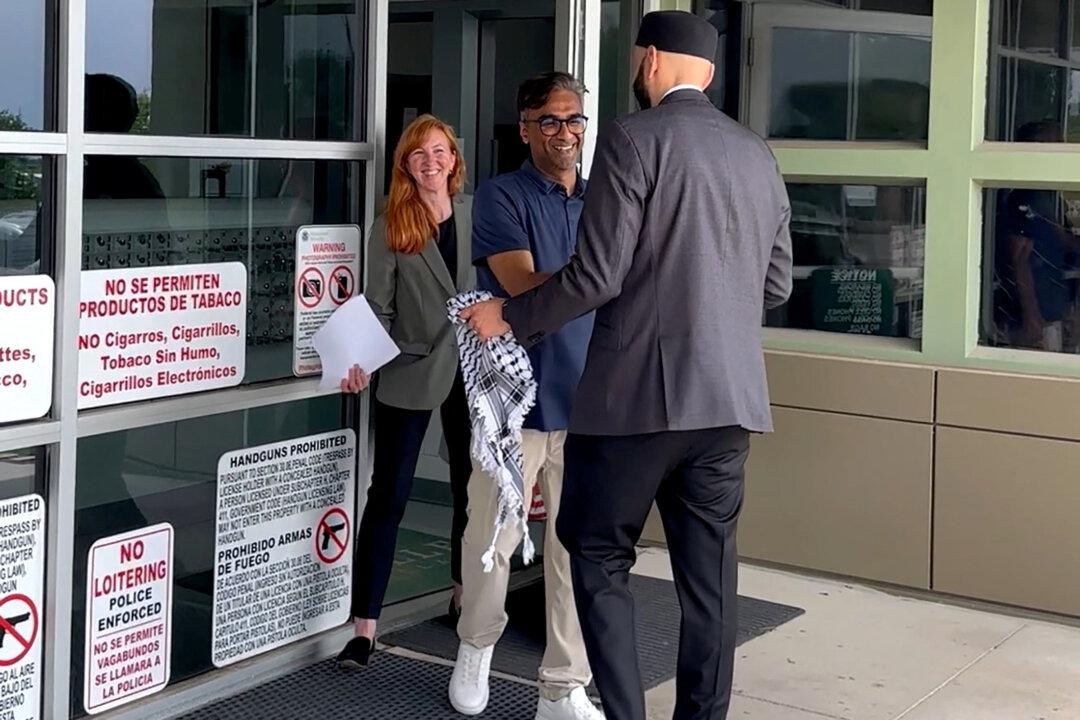A federal judge on May 13 ordered the immediate release of Georgetown University researcher Badar Khan Suri, whom the Trump administration accused of having ties to the Hamas terrorist group.
The decision, issued by U.S. District Judge Patricia Tolliver Giles in Virginia on May 14, allows Suri—an Indian national residing in the United States on a student visa—to return to Virginia while his legal challenge against the government proceeds. He spent nearly two months in Immigration and Customs Enforcement (ICE) custody.





